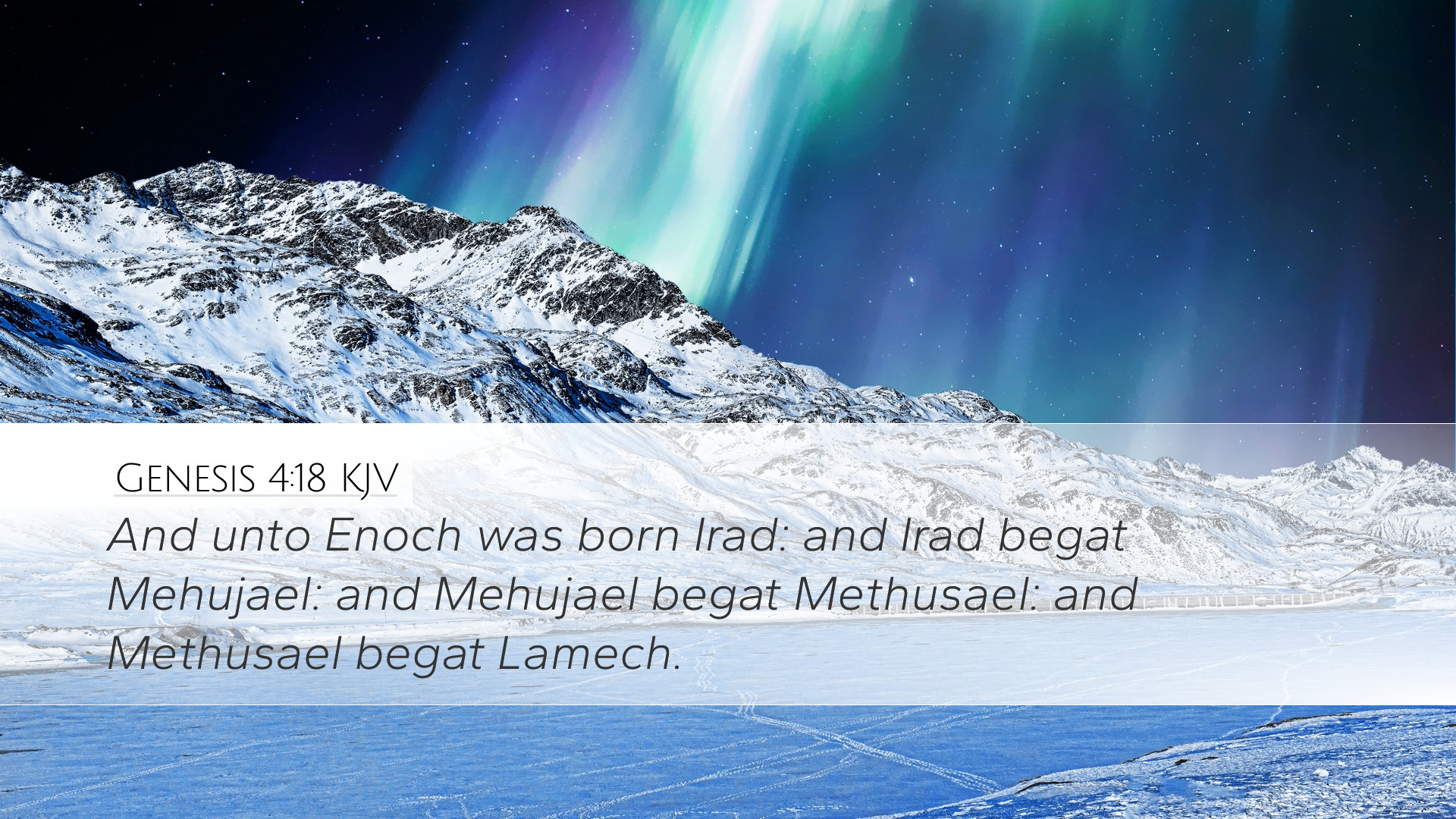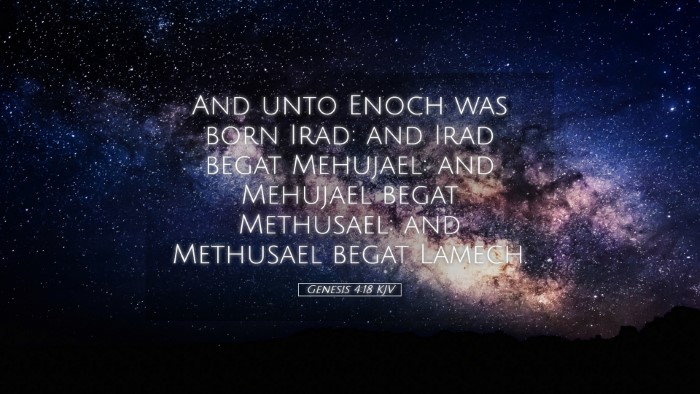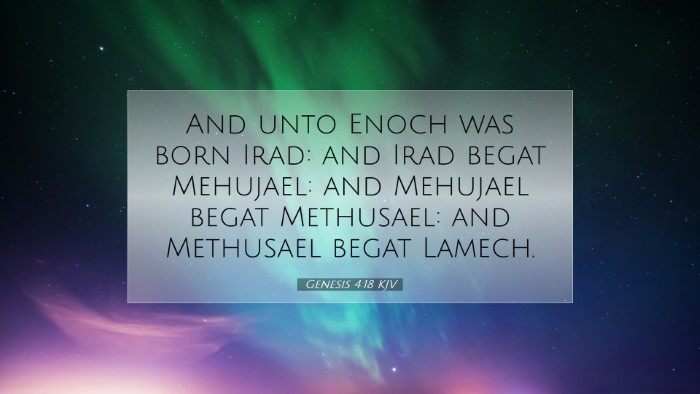Commentary on Genesis 4:18
Verse Text: "And Enoch was born Irad: and Irad begat Mehujael: and Mehujael begat Methusael: and Methusael begat Lamech."
This passage presents a genealogy of the line descended from Cain, which carries significant theological implications. The text invites us to reflect on the legacy of Cain and the nature of human development in the midst of sin.
1. The Lineage of Cain
Connection to Cain's Sin: The generations that follow Cain are marked by both human ingenuity and the deep scars left by sin. Matthew Henry emphasizes that the genealogy not only chronicles names but also reflects a moral and spiritual descent.
- Irad: The first name in this line signifies a "city." This highlights the establishment of civilization, as Cain sought to build a secure life after his exile.
- Mehujael: His name might imply "struck by God," indicating a divine repercussion early in humanity's history.
- Methusael: His name has been interpreted as "man of God," potentially suggesting a paradox of spirituality within a lineage often associated with rebellion against God.
- Lamech: This significant figure represents a divergence from the past; his name is linked with strength and possibly the concept of a "strong youth," reflecting an increased departure from ancestral morality.
2. Theological Insights
Albert Barnes points out that this genealogy illustrates the distinction between the line of Seth (the godly line) and the line of Cain (the ungodly line). The chronicling of these names serves to remind us of the ongoing struggle between good and evil in humanity's history.
The line from Cain, while establishing cities and cultures, represents a turning away from God’s original intent for humanity. The juxtaposition of development and moral decline is a recurring theme in the Biblical narrative.
3. The Significance of Names
The meanings attributed to the names in this passage carry profound implications:
- Sociocultural Development: The reference to cities illustrates human creativity and societal organization. However, as noted by Adam Clarke, it also opens a discourse on the consequences of creating systems apart from God.
- Historical Legacy: The lineage serves not just a genealogical purpose but reflects humanity's ongoing narrative; it tells of the culture evolving amidst moral decay.
- Divine Judgment: Each name also serves as a reminder of God’s judgment on humanity’s sin, echoing the theme of divine justice throughout Scripture.
4. Lamech’s Distinction
Lamech’s prominence in this genealogy deserves special attention. As a figure who introduces polygamy and speaks with an air of defiance, Lamech symbolizes the peak of human rebellion:
- Polygamy: His taking of multiple wives signifies a departure from God’s original design for marriage, emphasizing the decay of societal norms.
- Self-Exaltation: Lamech’s words reflect a prideful attitude, laying claim to vengeance and asserting superiority over Cain's transgressions.
- Contrast to Righteous Lineage: In comparison, the line of Seth introduces figures of faith, highlighting the continuing battle between the spiritual heritage of the godly line versus the earthly aspirations of Cain's descendants.
5. Application for Today
This passage challenges modern readers to consider how society has continued to evolve in technology, culture, and intellect, all the while grappling with moral and spiritual consequences:
- Human Achievement vs. Spiritual Truth: There is often an emphasis on progress and achievement that can overshadow the need for ethical and moral foundations.
- Legacy of Choices: The decisions made by one generation shape the destiny of the next. Leaders and parents should reflect on the implications of their choices.
- Call to Righteousness: Believers are reminded to adhere to God’s commandments, showing that while culture may evolve, moral standards rooted in Scripture do not, and must guide our actions.
Conclusion
Genesis 4:18 is not merely a genealogical record; it encapsulates the essence of human history relevant to our spiritual life today. It serves as a sobering reminder of the effects of sin, the heights of human achievement, and the necessity for divine guidance in our lives. Pastors, students, theologians, and scholars alike can draw profound insights from this text and encourage their congregations and communities to reflect on the spiritual heritage that shapes our current existence.


